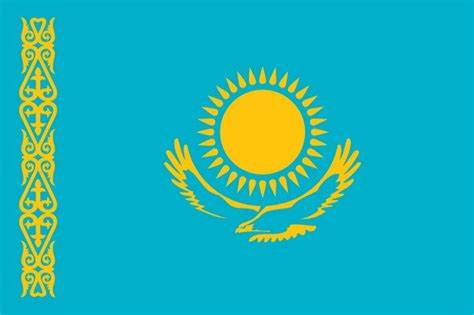
In Kazakhstan, President Kassym-Jomart Tokayev signed a new law banning gambling among civil servants, members of the military and heads of state organizations. However, the decision is only part of a wider legislative reform proposal, which has yet to be fully adopted. Other aspects of the reform have sparked debate and controversy, including accusations of lobbying, whistleblowing and wrongful political arrests.
Gambling among civil servants is prohibited
The newly signed law aims to combat the country's gambling addiction problem, affecting about 280,000 civil servants. In addition, the law also prohibits debtors from gambling, affecting 3.5 million people.
“The list of people prohibited from gambling and betting has been expanded. People included in the debtor’s register have been added to the list. Gambling is prohibited for civil servants, military personnel, staff of special and law enforcement agencies and heads of public sector organizations. Failure to comply The law will be dismissed,” reported the Akorda press service of the Presidential Palace.
Under the new law, telecom operators are now prohibited from sending gambling-related ads. Advertising of betting shops and casinos is prohibited, and violators will be fined 200,000 Kazakh tenge ($416). Unlicensed foreign bookmakers, lotteries and online casinos are prohibited from applying for licenses, and those who organize online casinos will face up to two years in prison. At the same time, the minimum betting age has been raised to 21.
BAC Controversy: Who Will Control the Gambling Market? ?
Kazakhstan’s gambling market dates back to the Soviet era, with a set of strict regulations first introduced in 2017. The newly passed law is part of a wider legislative reform effort and was initially proposed as a public health bill in 2020.
Notably, the proposed reforms include the creation of a Betting Accounts Center (BAC), run by a private company, which will regulate the betting market. BAC will control resource allocation, production and sales, identify market participants, and receive 1.5% of all profits. The creation of such an entity sparked widespread debate in Parliament amid concerns about potential abuse and corruption. Given the profitability of the gambling market, a profit of 1.5% represents a huge amount: by 2025, Kazakhstan’s gambling industry is expected to generate $500 million in revenue.
In 2020, Kazakh Deputy Culture Minister Saken Musaybekov resigned after accepting bribes from lobbyists representing two opaque private companies, Exirius LLP and PayBox. These companies intend to promote the Betting Account Center (BAC) Bill and hope to be selected to manage all BAC functions.
Opponents of the BAC Bill reportedly face pressure to remain silent and risk retaliation if they speak out. For example, the owner of independent bookmaker Olimp was arrested after holding a press conference to oppose the introduction of BAC. Although the government accuses them of being part of an organized crime group, they claim they were targeted for reporting.
Despite the controversy, the BAC, which has been revamped and renamed the Unified Accounting System (UAS), remains part of the new draft law. The amendments passed the first and second passes of parliament in June and are awaiting the president's signature.
Fighting gambling addiction in Kazakhstan
The Kazakh government reports that more than 350,000 people, including many minors, are involved in gambling activities, accounting for nearly 2% of the total population. The government plans to halve this number in the coming years. According to the Ministry of Internal Affairs, these gamblers are each saddled with an average debt of 10 million Kazakh tenge (20,083 U.S. dollars).
“Compulsive gambling causes untold suffering, destroys thousands of families and leads many people to turn to crime. Every day there are news stories of people committing suicide because of excessive gambling debt. This addiction is harmful to The younger generation is causing great harm; online gambling is becoming a daily leisure activity for children,” said President Tokayev.









